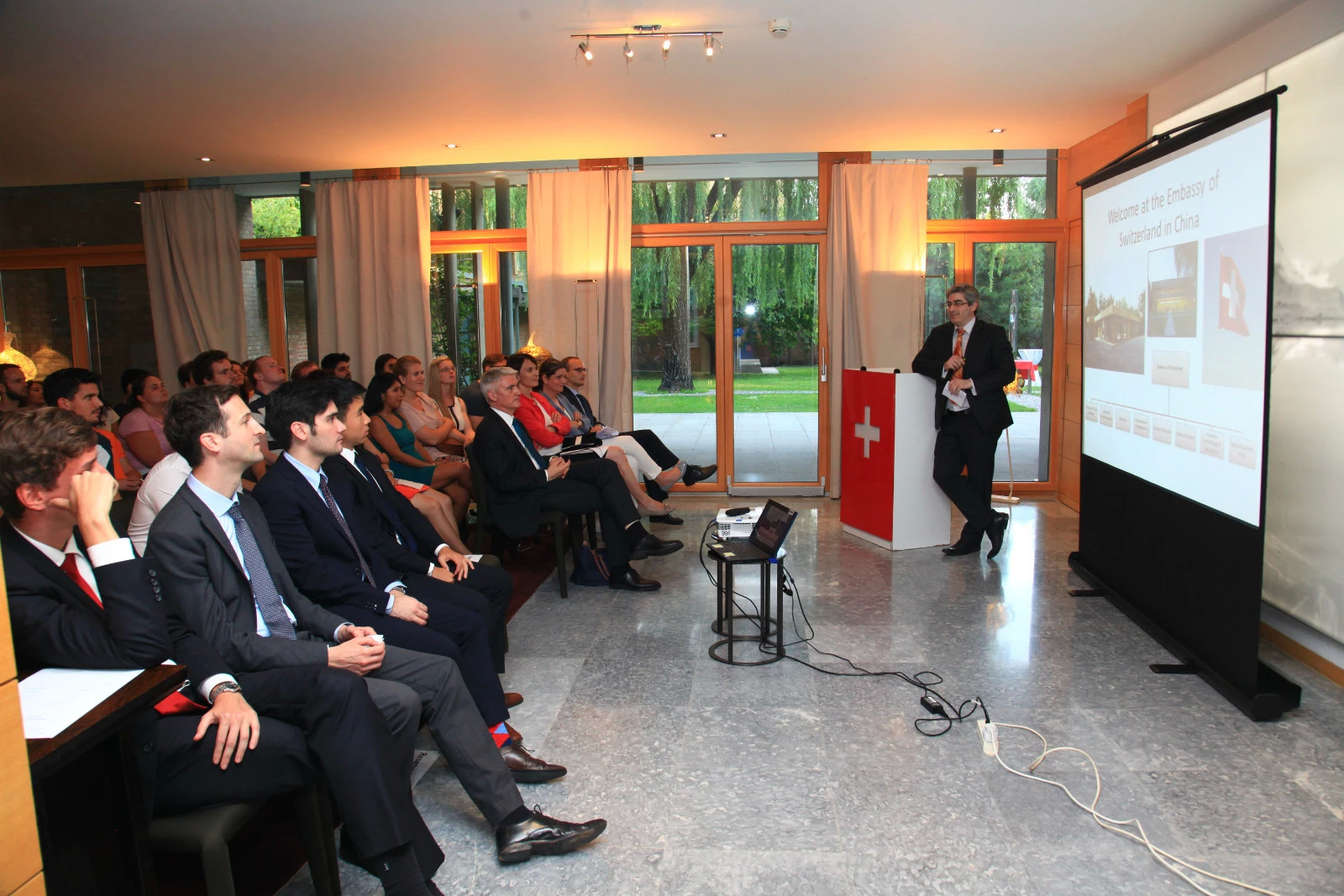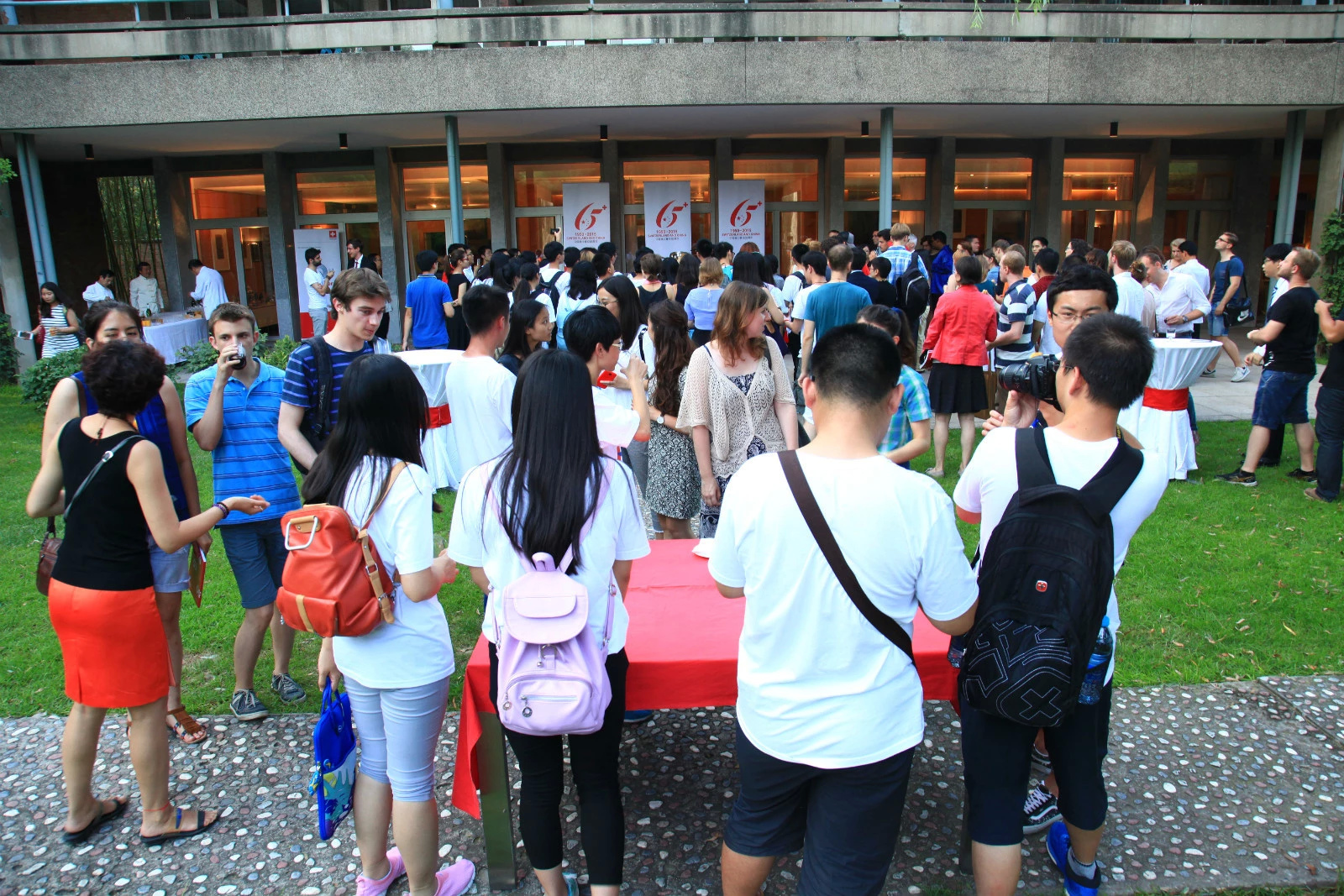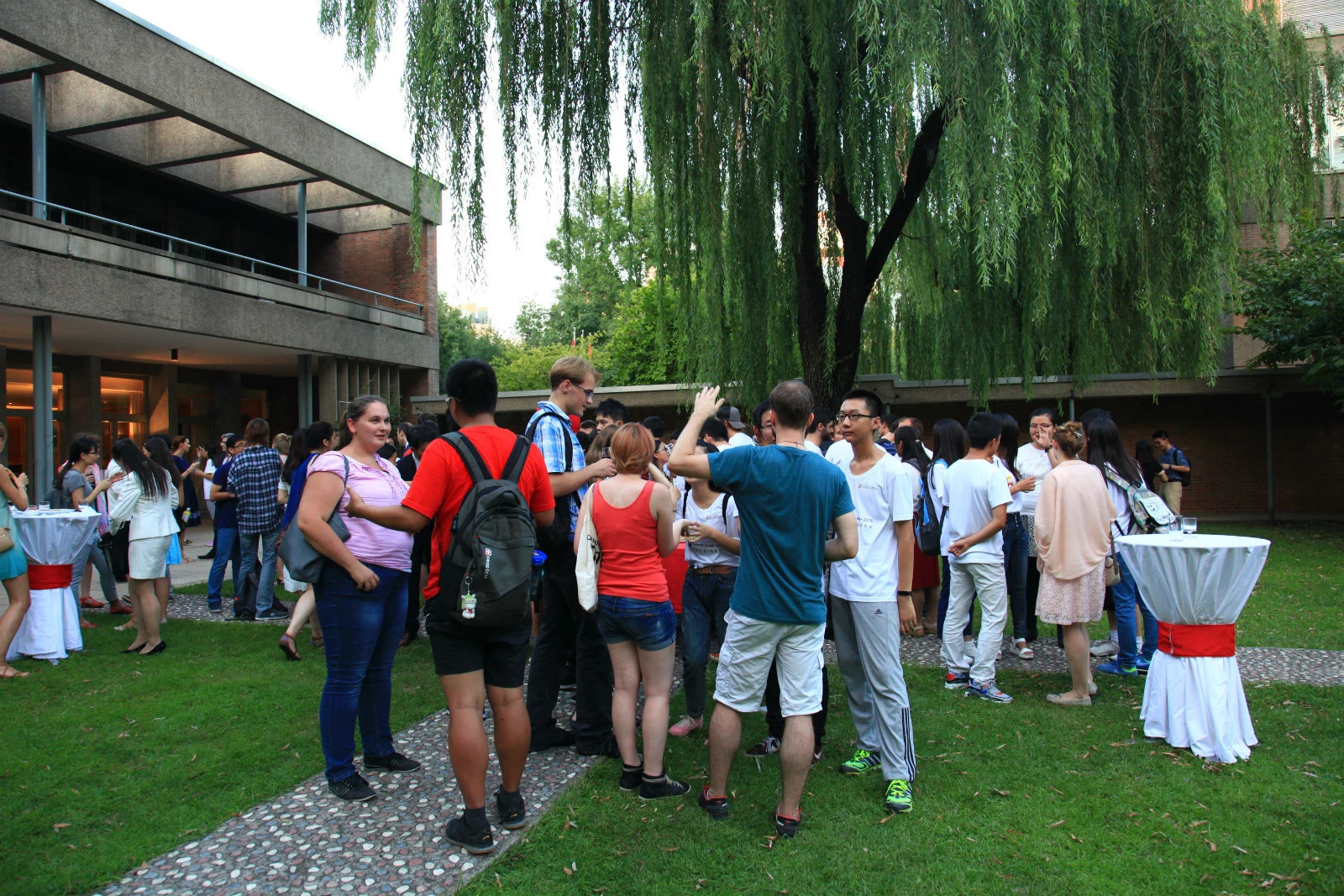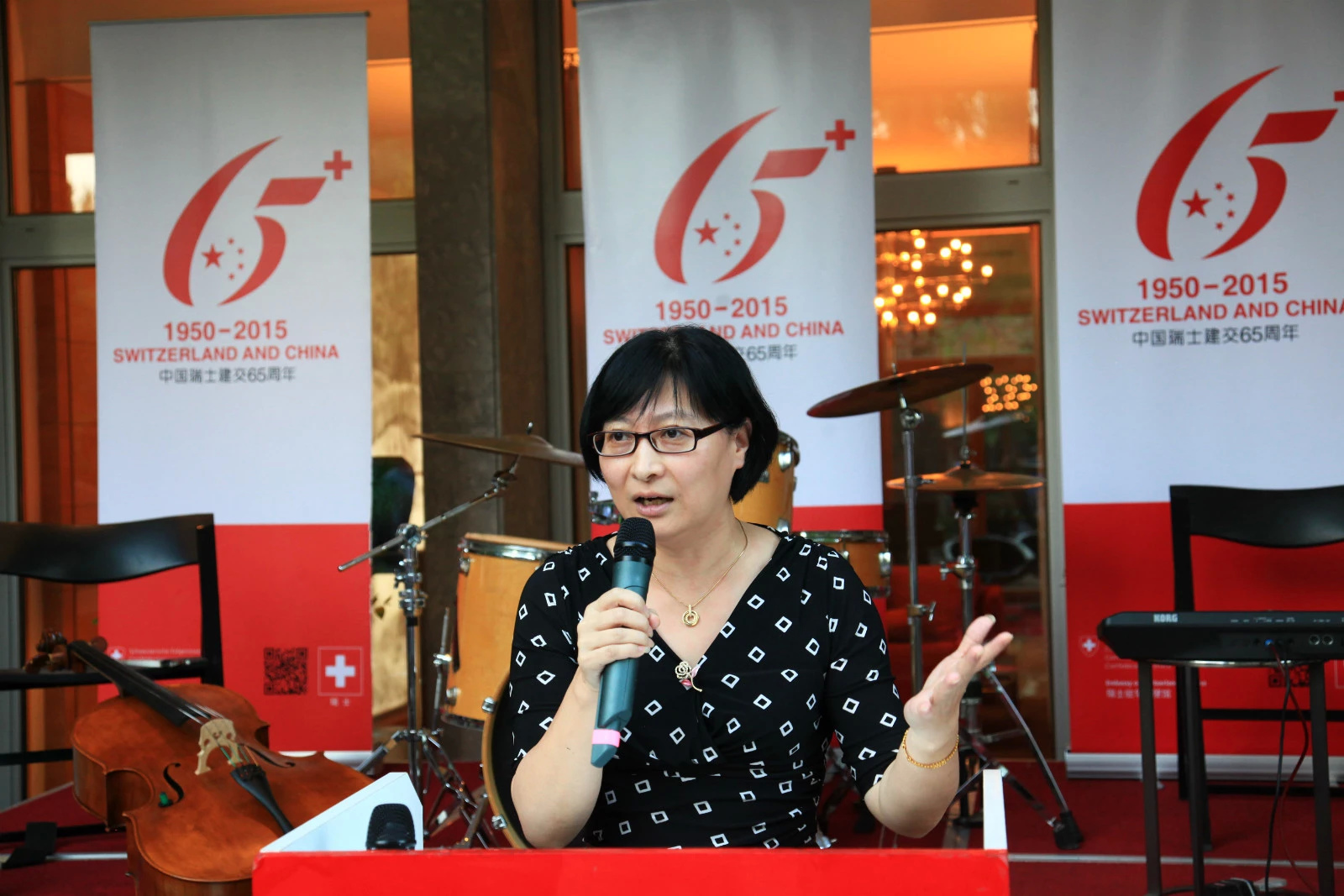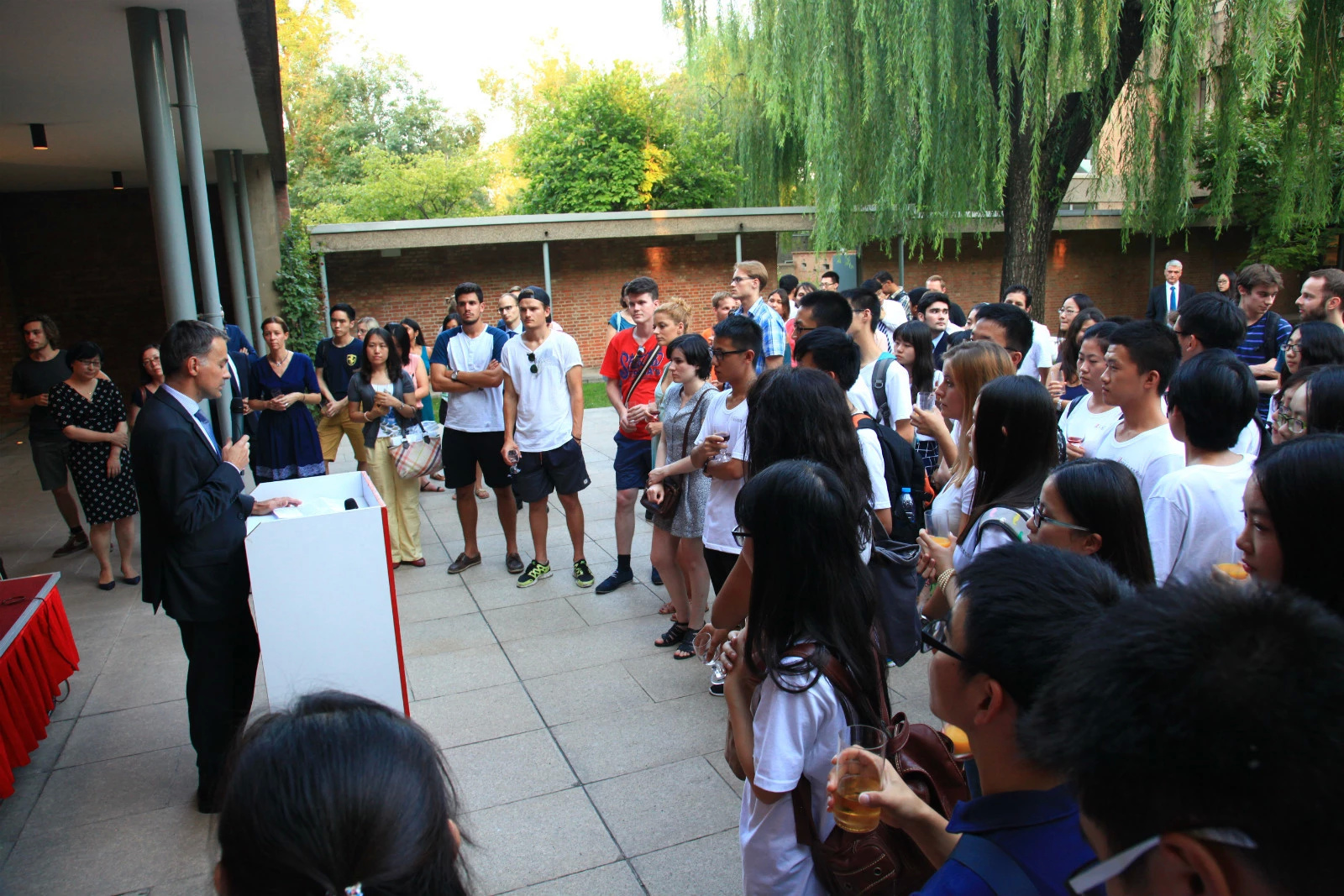A total of 100 university students from Switzerland have been invited by Chinese Premier Li Keqiang for a language and cultural exchange program to China this August, a cordial gesture to celebrate the 65th anniversary of diplomatic relations between Switzerland and China. The exchange program is also expected to enhance the students’ understanding of the two countries, promote youth exchanges and boost cooperation in the cultural and educational fields.
The first group of 50 students from a number of Swiss universities arrived in Beijing on August 2, and will be studying the Chinese language and culture at Beijing Foreign Studies University for one month. The second group is scheduled to attend summer camps in Shanghai later this month at the host of Renming University and Eastern China Normal University, partner universities of the Confucius Institutes in Geneva and Basel.
On Monday, August 10, the 50 Swiss students in Beijing were invited to a workshop and networking event co-organized by the Swiss Embassy in China and the Office of Chinese Language Council International (better known as Hanban), which oversees the Confucius Institute. At the event, the students were introduced to the various functions of the embassy, the major achievements of the prosperous Sino-Swiss relations and were provided the opportunity to meet and exchange opinions with Chinese students.
“A country with rich experience in innovation and research, Switzerland has been continuously working with China and has strong aspirations to do more. Exchanges and cooperation between Switzerland and China have increasingly intensified on government and industry levels. I am also glad to see that our two countries have consistently worked closely together on education and academic exchange until today,” said Alain Gaschen, Deputy Head of Mission at Swiss Embassy in China, at the networking event on Monday evening. “The two countries have jointly made tremendous achievements in the past 65 years, but it is you, the young people who will shape the future of the bilateral ties in the next decade," he added, noting the importance of the exchange.
Patrick Haughian, a PhD candidate in physics at Swiss Federal Institute of Technology in Zurich (ETH Zurich), learned about the program from his Chinese teacher, and was glad to be selected. "What I find interesting about China is that it has been growing really fast and leads in many areas, such as infrastructure, while things in Europe are growing relatively slow," said Haughian. The exchange program gives him the opportunity to know the country first-hand and he looks forward to visiting China soon again in the future.
The exchange program, the largest one of its kind between Switzerland and China this year, was proposed by Chinese Premier Li Keqiang during his meeting with Swiss President Simonetta Sommaruga at the Annual Meeting of the World Economic Forum in Davos in January, 2015. The invitation also aims to strengthen people-to-people exchanges.
As one of the first Western countries to recognize the People’s Republic of China in January 1950, Switzerland has fostered a dynamic relationship with China and built up a number of milestones. In the educational field, in 1963, the first group of Swiss students came to study in China with scholarships granted from the Chinese government. 1978 saw the first group of Chinese government-funded students studying in Switzerland. In recent years, there have also been increasing exchanges among the youth from the two countries. The number of Chinese students enrolled at Swiss universities has more than doubled since 2004 and the number of Swiss students in China has increased fivefold.
